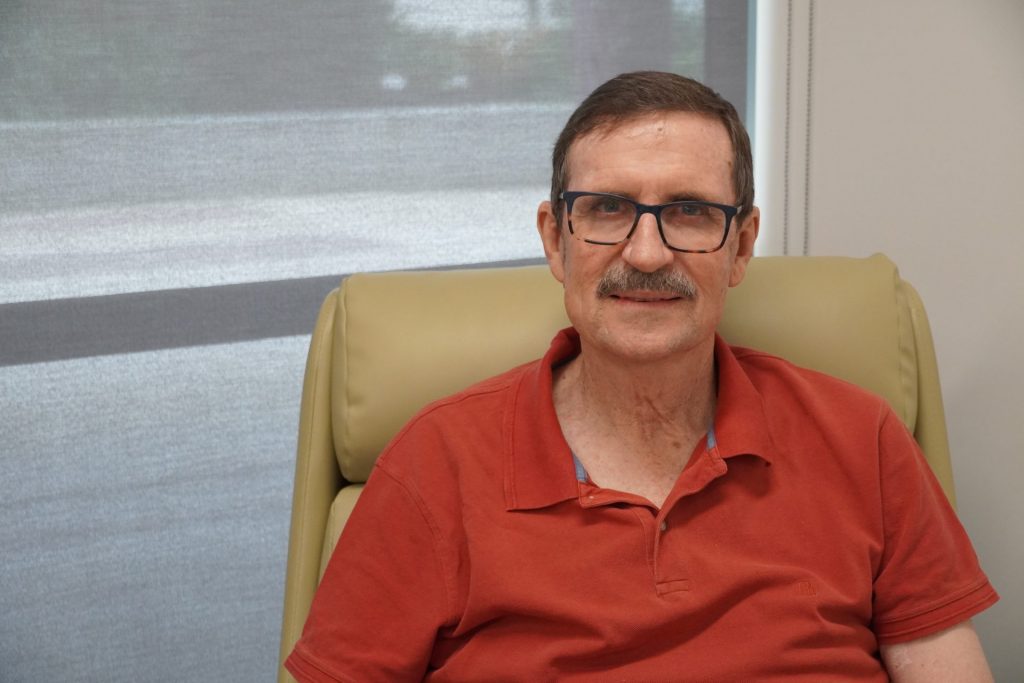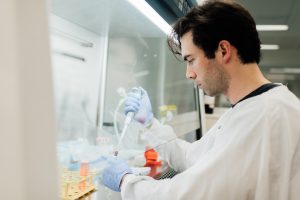A patient at the Royal Adelaide Hospital (RAH) is the first person in the world to be infused with a new drug to treat myelofibrosis, a type of bone marrow cancer.
“It was now or never, and if it can make a difference then I’m happy to be part of it.” patient Greg said.
The hospital was chosen as the site to administer the USA-made drug as part of a global clinical trial aimed at improving treatment for myelofibrosis.
Clinical trials are a way to assess effectiveness of promising new drugs, and offer consenting patients access to the very latest in medical innovations.
“This is exciting for doctors, for nurses, and for everyone involved, so fingers crossed,” said Greg.
New treatments for deadly diseases
The RAH Haematology Clinical Trial Unit treats patients like Greg who have been diagnosed with blood cancers and disorders, including myelofibrosis, and who have limited treatment options available.
“This new drug is a very different treatment for myelofibrosis from any other that currently exists,” said RAH haematologist Associate Professor David Ross, who is managing the clinical trial locally.
“It’s a kind of molecule called an antibody that acts on a mutated protein present on all cancer cells in this particular disease and prevents them from growing.”
While traditional chemotherapy does kill cancer cells, it also kills healthy cells and can lead to debilitating side effects such as nausea, hair loss and nerve damage.
Bone marrow transplants are a treatment option for some patients with blood cancers, however this approach is typically not an option for older and frailer patients.
“You just hope that this [trial] can help other people too really,” Greg said.
“I’m prepared to give this a go; the whole family is supportive.”
Scarring in bone marrow
Myelofibrosis is a type of cancer that creates scar tissue in bone marrow, the site that produces the many types of cells that make up our blood.
When the bone marrow becomes crowded with scar tissue, it’s not able to produce enough blood cells. This can lead to anaemia, tiredness, abdominal pain and other debilitating symptoms.
“We’re hoping this new drug can prevent further damage to the bone marrow of those affected with myelofibrosis, and potentially put people in remission,” said A/Prof Ross.
“It’s a privilege for the RAH to be chosen as the site to kick off this trial, and a reflection of the fact that we’re acknowledged internationally for the work and research we do here.”



